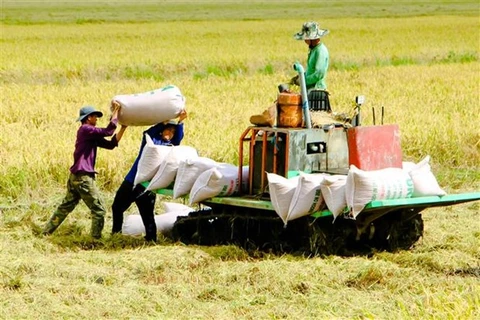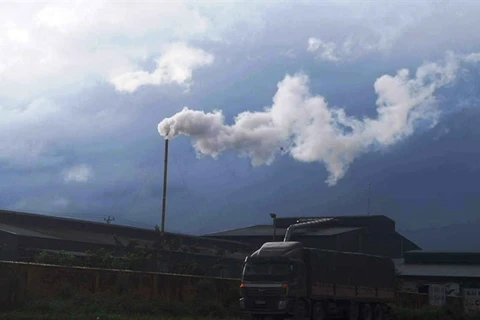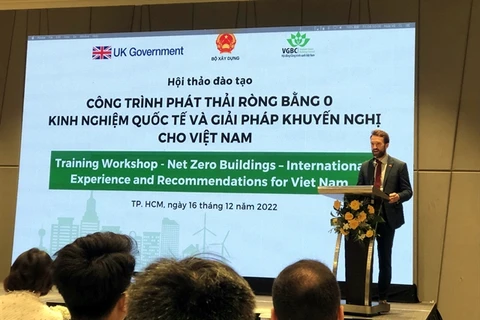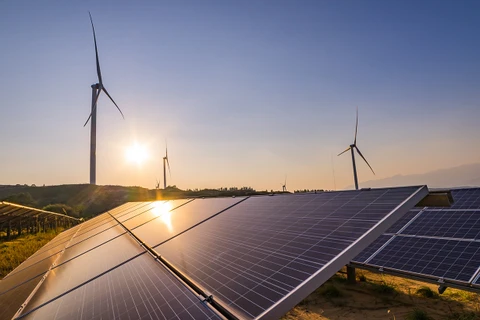 Solar panels installed on the rooftops of a seafood processing plant in the Mekong Delta. (Photo: VNA)
Solar panels installed on the rooftops of a seafood processing plant in the Mekong Delta. (Photo: VNA) The EU’s Carbon Border Adjustment Mechanism (CBAM) by the European Parliament (EP), according to the EP, is to "put a fair price on the carbon emitted during the production of carbon-intensive goods that are entering the EU, and to encourage cleaner industrial production in non-EU countries."
The bloc requires exporters to report their commodities' carbon footprints, on which a tax may be levied should carbon emissions during the production of said commodities exceed the EU's carbon regulations.
Instead of buying the EU's carbon certificate, Vietnamese businesses could take steps to reduce their own carbon footprints during production, experts said.
The mechanism will start with commodities with higher carbon footprints including steel, cement, fertiliser, aluminium and electricity, which altogether account for 94% of the continent's carbon emissions.
Andrew Wyatt, deputy head of the International Union for Conservation of Nature (IUCN) in Vietnam, urged the central Government to establish policies to monitor and issue carbon certificates to Vietnamese exporters and producers by 2025.
He said IUCN, the Ministry of Natural Resources and Environment (MoNRE) and the Ministry of Agriculture and Rural Development (MARD) have been working closely together in recent years to build policy frameworks related to the global carbon market.
Industry experts said CBAM will affect Vietnamese major exporters and retailers first, especially producers and exporters of products with higher carbon footprints, giving smaller players some time to prepare.
Vietnamese businesses, however, have been anticipating the new carbon tax for quite some time as many already implemented measures to reduce their carbon emissions.
Ho Quoc Luc, Chairman of the Board of Directors at the Sao Ta Food JSC, said solar panels have become the norm among Vietnamese seafood producers in the last few years. In addition, they have been actively seeking ways to turn their by-products into new products instead of discarding them into the environment.
To produce greater results, however, there was a need to establish a set of common standards for the entire supply chain, he said.
Nguyen Thi Lien, Deputy General Director of Phong Phu International JSC, said her company has been taking numerous steps to reduce pollution during the last ten years including lowering energy consumption, water waste, and chemical waste, and replacing old machinery gradually.
Pascal Canfin, Chair of the EU's Committee on CBAM, said the mechanism is the EU's first attempt to ensure fairness among European businesses, who are subject to the continent's strict carbon rules, and international businesses.
Canfin added CBAM is part of the EU's "do-more" attitude to sustainable development, environmental preservation and worker protection.
CBAM is to become a key pillar in the EU's climate change policy, making it the first trade bloc to impose a carbon tax on imported goods, on top of already existing environmental taxes./.
VNA























